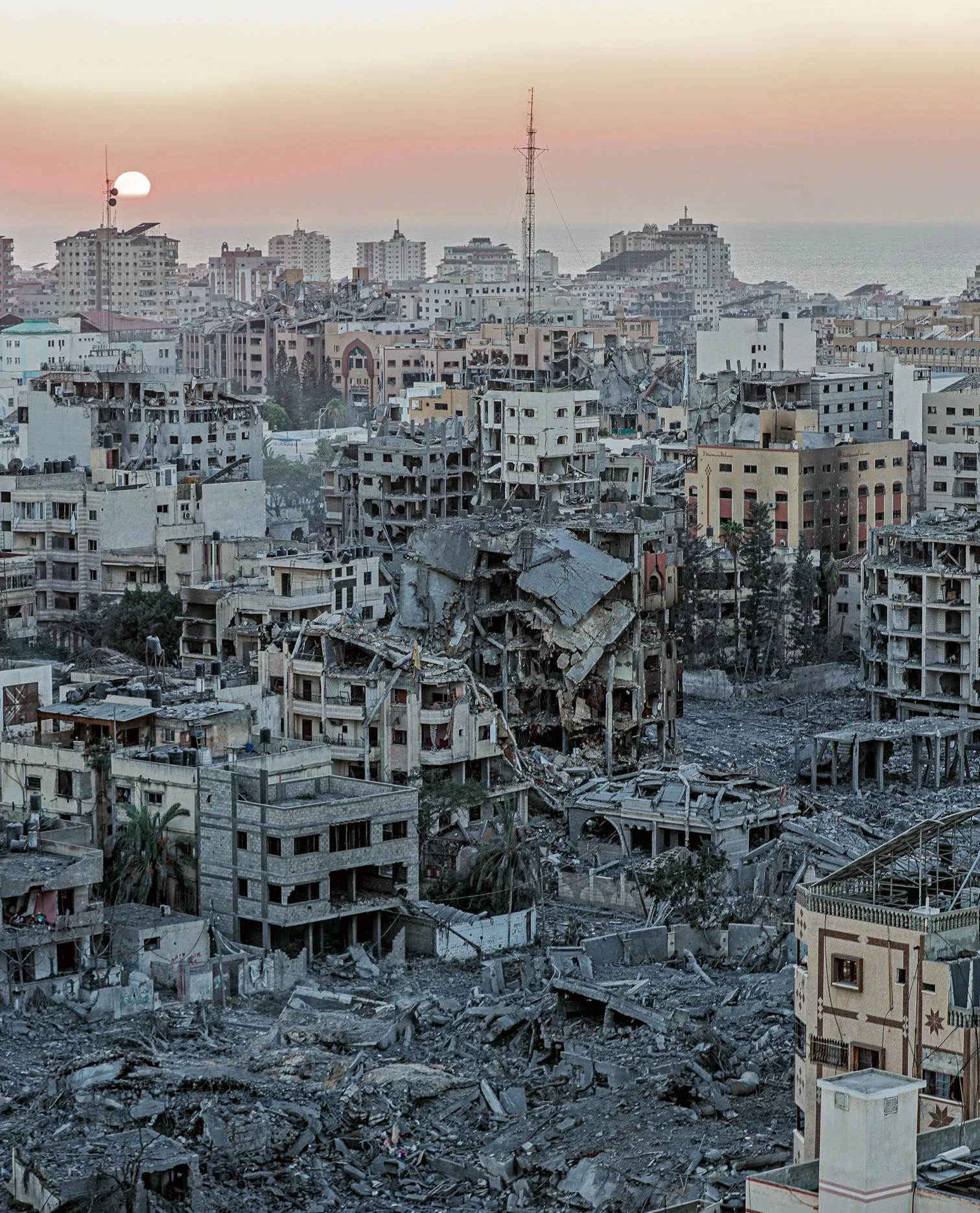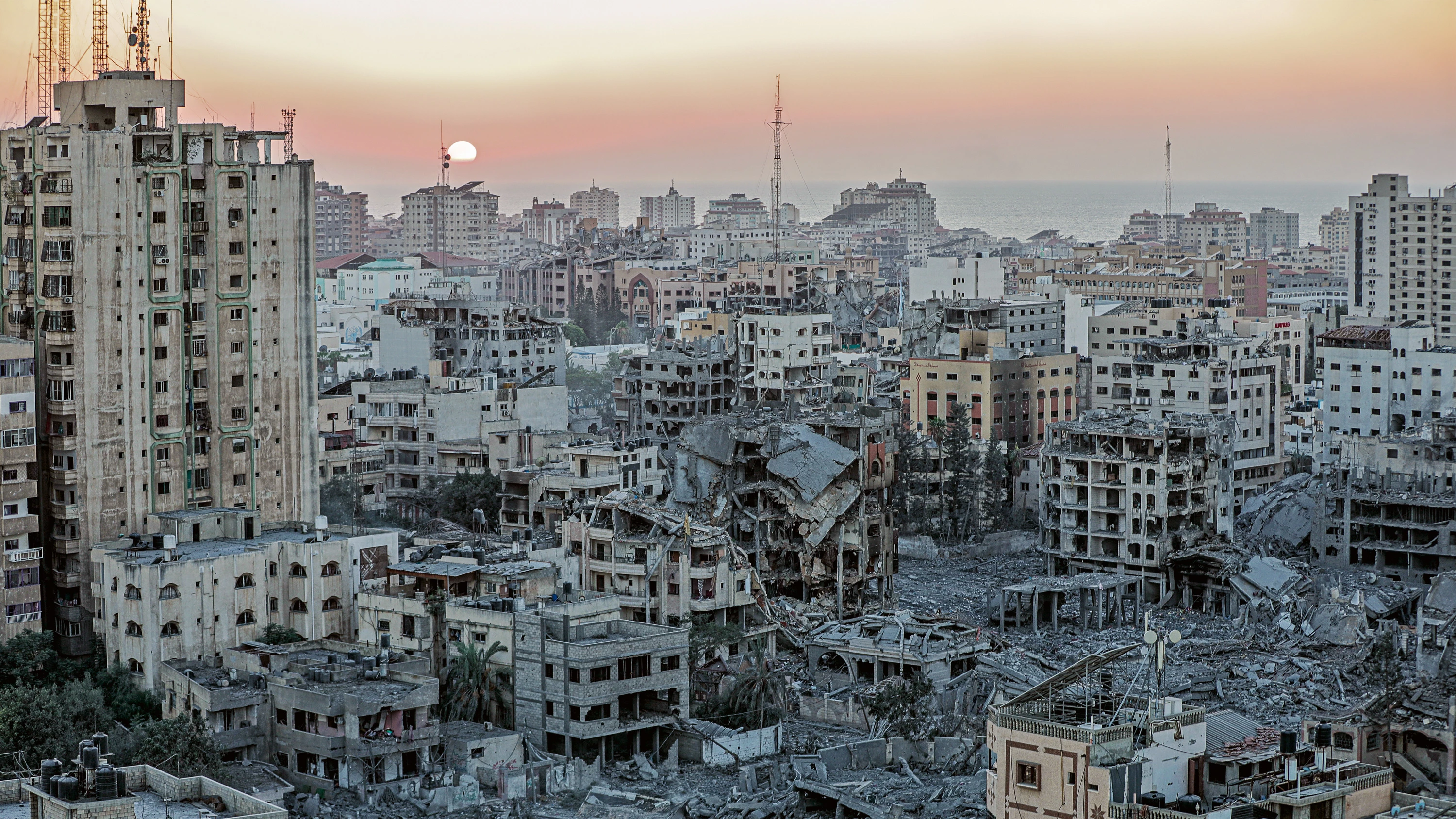
Gaza City neighborhood bombed by the Israeli air force © Atia Darwish / APA Images
Like Samson in his captivity, Israel is eyeless in Gaza. Captured and blinded, the Israeli hero regained his phenomenal strength to tear down the columns that held up the temple and make his enemies perish with him. The Biblical story inspired a poem by John Milton, from which comes the title of Aldous Huxley’s Eyeless in Gaza, a text that describes us as blind to identity and memory. After the tragic terror of 7 October, pain has blinded Israel, and it confronts the Gaza Strip wanting to destroy the columns that support the power of Hamas, even though this means the death of innocent people, and the death too of the moral tissue of a country that wanted to be Ohr L’Goyim, light unto the nations. If 7-O has been the 9/11 of Israel, the American experience in Iraq and Afghanistan should give Israel cause for reflection, because the worst catastrophe in its 75 years should not result in a medieval siege and a new Nakba: as many have recalled, Israel will not have security unless the Palestinians have hope.
The terrorist attack of Hamas, indeed, exceeded all limits. The cruel extermination of men, women, children, and elderly in the kibbutzim close to the border fence, the killing of youngsters at a rave in the Negev desert, and the indiscriminate taking of hostages driven into the infernal labyrinth of the tunnels, and all this proudly documented by the assassins themselves, rivals in abjection with the worst actions of ISIS. This cannot be countered by the authoritarian drift of Netanyahu, in the hands of religious extremists who provoke Muslims on the Esplanade of Mosques or protect the settlers who have created in the West Bank an archipelago of precincts, rendering the two-state solution almost impossible. Israel will have the solidarity of the West, but as much its recent behavior as the steps it might take, driven by a desire for revenge, will make it lose the opinion war in the global south, where the geopolitical conflict between the blocs is being settled today, and perhaps also in Europe.
In the sacred places of the three monotheistic religions there is “too much history, too little geography,” and all efforts to stabilize the region have failed. After the fiasco of Camp David in 1979 and Oslo in 1994, the Abraham Accords started in 2020 had opened a horizon of hope, because the Emirates, Bahrein, Sudan, and Morocco normalized their relationship with Israel, as Egypt had done in 1979 and Jordan in 1994, but the critical agreement with Saudi Arabia has been thwarted in the wake of 7-O, benefiting an Iran that finances Hamas in Gaza and Hezbollah in the south of Lebanon. Europe, which in this occasion has shown its impotence, is surrounded by a series of crises that extend from the Sahel to Libya, Gaza, Syria, the Caucasus, or Ukraine, as it suffers demographic decline and the impact of massive migration. But perhaps we could nevertheless contribute, from our rather subordinate position, to an agreement between the great powers which could prevent the spread of a conflict that has already caused too much pain.







